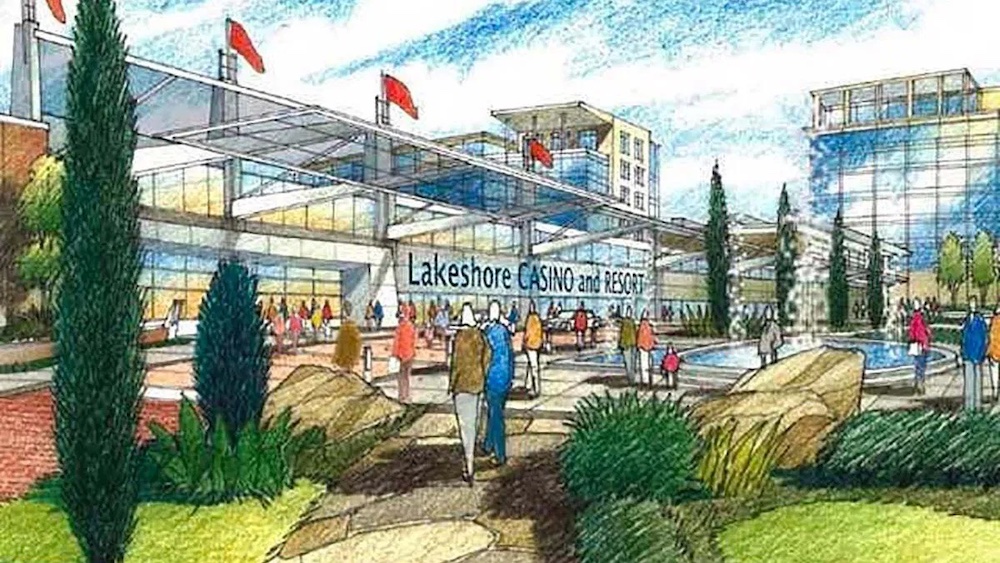
- Details
- By Chez Oxendine, Tribal Business News
The Little River Band of Ottawa Indians’ $200 million casino project in Norton Shores, Mich. appears unlikely to move forward after 14 years of planning and $35 million in development costs.
Tribal Ogema Larry Romanelli told local media that the project has likely reached “the end of the line” due to ongoing delays in securing state approval.
“I started out this project (when) I was in my 50s. I’m now in my 70s,” Romanelli told WOOD-TV8. “It isn’t everyday that a tribe — or at least our tribe — can just give out $35 million for a project.”
The proposed Lakeshore Casino and Resort would create between 1,500 and 4,000 jobs according to Romanelli. Plans include 1,700 slot machines and 35 table games.
While the Department of Interior granted federal approval by taking the property into federal trust in 2020, the site is not contiguous to the Little River Band’s existing reservation lands in Manistee and Mason counties. Under the Indian Gaming Regulatory Act, off-reservation gaming — already creating contentious cases across the country — requires approval from the state’s governor.
Michigan Gov. Gretchen Whitmer declined the initial project application in 2022 citing concerns about the pending federal recognition of the Grand River Band of Ottawa Indians. After the tribe submitted a second application, Romanelli said he met with Whitmer in October 2024, but received no definitive answer on the project’s status.
The delay creates additional challenges as required studies on transportation and community impact have limited shelf lives and need regular updates, according to Romanelli.
While the tribe has no plans to sell the former Great Lakes Downs racetrack property, Romanelli told local media outlets that they have an alternative development plan if the casino project doesn’t come to fruition. However, he noted the alternative would not generate the same economic benefits as the casino.
“Such a golden opportunity to be lost is just a shame,” Romanelli told local tv station WZZM-13.
Whitmer’s office has not commented on the project’s status. The tribe is awaiting response from the Department of Interior regarding its latest application.
Brian Edwards provided additional reporting.
Help us defend tribal sovereignty.
At Native News Online, our mission is rooted in telling the stories that strengthen sovereignty and uplift Indigenous voices — not just at year’s end, but every single day.
Because of your generosity last year, we were able to keep our reporters on the ground in tribal communities, at national gatherings and in the halls of Congress — covering the issues that matter most to Indian Country: sovereignty, culture, education, health and economic opportunity.
That support sustained us through a tough year in 2025. Now, as we look to the year ahead, we need your help right now to ensure warrior journalism remains strong — reporting that defends tribal sovereignty, amplifies Native truth, and holds power accountable.
 The stakes couldn't be higher. Your support keeps Native voices heard, Native stories told and Native sovereignty defended.
The stakes couldn't be higher. Your support keeps Native voices heard, Native stories told and Native sovereignty defended.
Stand with Warrior Journalism today.
Levi Rickert (Potawatomi), Editor & Publisher
